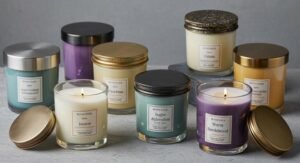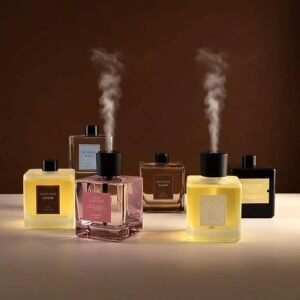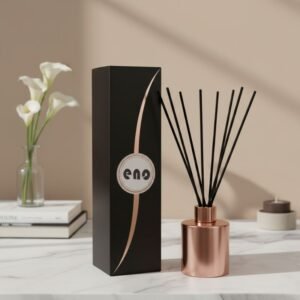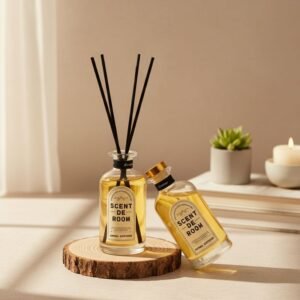Затрудняетесь с выбором между парфюмерными и эфирными маслами для домашнего диффузора? Неправильный выбор вредит оборудованию и приводит к пустой трате денег.
Парфюмерные масла работают в диффузорах, но требуют правильного разбавления и совместимых составов. Эфирные масла обладают терапевтическими свойствами, а парфюмерные масла обеспечивают более стойкие синтетические ароматы с разными требованиями к вязкости.
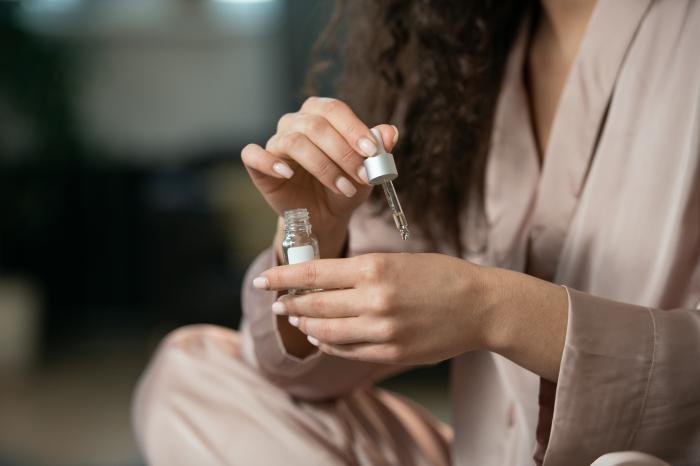
Понимание этих различий поможет вам выбрать подходящий диффузор для масел в соответствии с вашими потребностями в ароматерапии и безопасностью оборудования.
В чем разница между парфюмерными и эфирными маслами?
Запутались в том, какое масло лучше всего подходит для вашего диффузора? Неправильный выбор может засорить устройство и привести к пустой трате денег.
Парфюмерные масла содержат синтетические ароматизаторы, смешанные с маслами-носителями для консистенции, а эфирные масла - это чистые натуральные экстракты, которые обладают терапевтическими свойствами, но могут требовать разбавления для оптимальной диффузии.
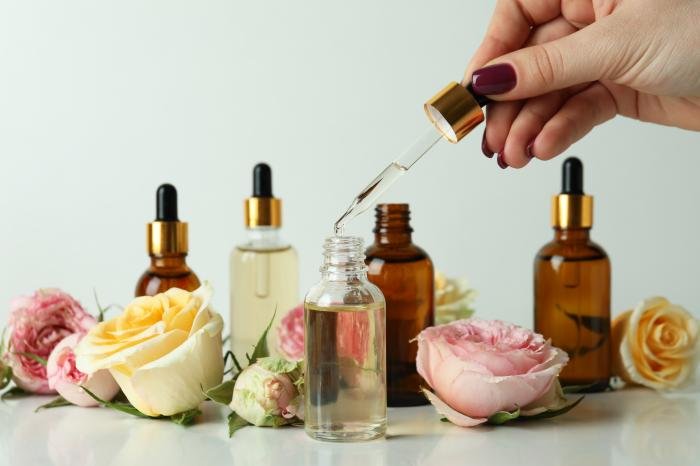
Состав и производственные различия
Эфирные масла - это натуральные экстракты растений, цветов и трав, полученные методом паровой дистилляции или холодного отжима. Эти концентрированные соединения сохраняют свою первоначальную молекулярную структуру и терапевтические свойства. Парфюмерные же масла сочетают синтетические отдушки с маслами-носителями, такими как жожоба или фракционированное кокосовое масло, для создания стойких и долговременных ароматов.
Выбирая масла для диффузора, обратите внимание на вязкость. Эфирные масла обычно имеют низкую вязкость и свободно проходят через механизмы диффузора. Парфюмерные масла часто содержат более густые масла-носители, которые могут замедлить скорость диффузии или со временем засорить ультразвуковые пластины. Правильное смешивание партий гарантирует, что ваши парфюмерные масла сохранят идеальную консистенцию для совместимости с диффузорами.
Производительность в диффузионных системах
Коэффициент разбавления существенно влияет на силу аромата и долговечность прибора. Эфирные масла эффективно работают в ультразвуковых диффузорах в пропорции 3-5 капель на 100 мл воды. Для парфюмерных масел могут потребоваться другие пропорции из-за содержания масла-носителя, обычно требуется 6-8 капель для сопоставимой интенсивности аромата.
| Тип масла | Коэффициент разбавления | Продолжительность аромата | Влияние устройства |
|---|---|---|---|
| Эфирные масла | 3-5 капель/100 мл | 4-6 часов | Низкий риск засорения |
| Парфюмерные масла | 6-8 капель/100 мл | 6-8 часов | Умеренный риск засорения |
| Натуральные экстракты | 4-6 капель/100 мл | 5-7 часов | Минимальное воздействие |
Синтетические ароматизаторы в составе парфюмерных масел часто обеспечивают более стойкий запах, что делает их идеальными для больших помещений. Однако они не обладают теми преимуществами очистки воздуха, которые обеспечивают натуральные экстракты благодаря своим антимикробным свойствам.
Можно ли использовать парфюмерные масла в различных типах диффузоров?
Неправильный выбор парфюмерного масла для диффузора может привести к засорению механизмов, плохой передаче аромата и повреждению оборудования, замена которого обойдется в сотни долларов.
Большинство парфюмерных масел работают в определенных типах диффузоров, но совместимость зависит от вязкости масла, механизма диффузора и правильного соотношения разбавления для достижения оптимального результата.
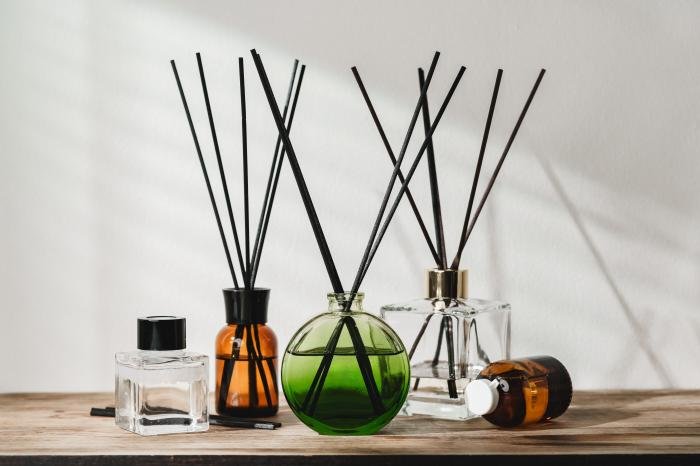
Совместимость с ультразвуковыми диффузорами
Ультразвуковые диффузоры лучше всего работают с тонкими, водорастворимыми парфюмерными маслами, которые не засоряют механизм вибрирующей пластины. Эти устройства используют высокочастотные колебания для создания тонкого тумана, что делает их идеальными для легких ароматических масел. Однако густые или насыщенные маслами парфюмерные композиции могут накапливаться на ультразвуковой пластине, что со временем снижает эффективность.
Ключевым моментом является вязкость масла - парфюмерные масла с соответствующими разбавителями или натуральной легкой консистенцией работают исключительно хорошо. Всегда разбавляйте концентрированные парфюмерные масла дистиллированной водой в соотношении 3-5 капель на 100 мл, чтобы избежать механических проблем.
Производительность теплового и тростникового диффузора
Тепловые диффузоры изменяют молекулярную структуру сложных смесей парфюмерных масел, часто уменьшая сложные верхние ноты и создавая резкие ароматические профили. Тростниковые диффузоры лучше удерживают аромат, но требуют масел с определенной вязкостью - слишком густые не будут подниматься по тростнику, слишком тонкие быстро испаряются, не выступая.
| Тип диффузора | Лучшая вязкость масла | Бросок аромата | Уровень обслуживания |
|---|---|---|---|
| Ультразвуковой | Светло-средний | Высокий | Низкий |
| Распыление | Средней толщины | Очень высокий | Средний |
| Рид | Средний | Средний | Низкий |
| Тепло | Любой (не рекомендуется) | Переменная | Высокий |
Профессиональное смешивание партий обеспечивает постоянную вязкость масла, а специальная упаковка предотвращает окисление, которое может повлиять на совместимость с диффузорами.
Как создавать стойкие ароматы с помощью парфюмерных масел?
Слабые ароматы слишком быстро исчезают, оставляя в помещении затхлый запах и заставляя постоянно пополнять запахи.
Для получения масел для диффузоров, которые держатся всю ночь, необходимо правильно подобрать соотношение масла и воды, понять механику выброса аромата и выбрать масла с оптимальной вязкостью для длительного выделения аромата.
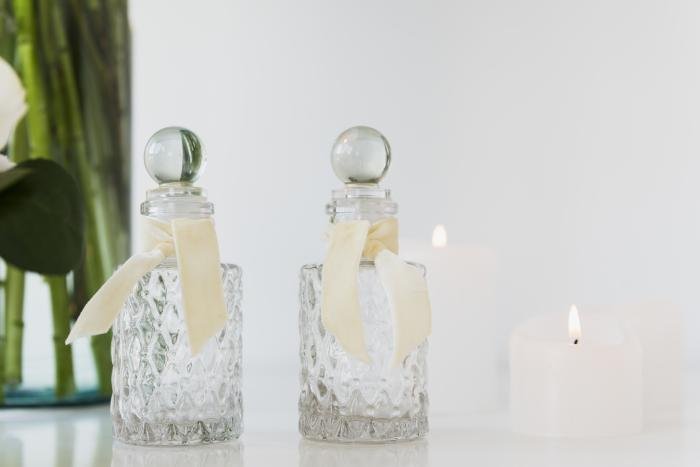
Понимание соотношения масла и воды для обеспечения максимальной долговечности
Основа долговечного аромата - правильное разбавление. Соотношение воды и масла 2:1 - оптимальный баланс для большинства ультразвуковых диффузоров, обеспечивающий равномерное распространение аромата без засорения механизмов. Более высокие концентрации масел могут показаться привлекательными, но зачастую они превышают возможности диффузора и снижают эффективность его работы.
Размер помещения существенно влияет на распределение аромата. В помещениях площадью менее 300 квадратных футов требуется 3-5 капель на сеанс, а в больших помещениях - пропорциональное увеличение. Несколько диффузоров, расположенных стратегически правильно, обеспечивают равномерное распределение аромата в обширных помещениях.
Выбор масел с превосходными свойствами отбрасывания аромата
Не все парфюмерные масла одинаково хорошо работают в диффузионных системах. Масла со средней вязкостью и натуральными фиксаторами сохраняют молекулярную целостность в процессе распыления. Благодаря этим свойствам фирменные ароматы эффективно распространяются по всему помещению.
| Тип масла | Дальность выброса аромата | Длительность | Лучший размер комнаты |
|---|---|---|---|
| Легкие цветы | 8-12 футов | 4-6 часов | Небольшие (100-300 кв. футов) |
| Вуди/Эмбер | 12-18 футов | 6-8 часов | Средний (300-600 кв. футов) |
| Цитрусовые смеси | 6-10 футов | 3-5 часов | Любой размер (быстрое обновление) |
| На основе смолы | 15-25 футов | 8-12 часов | Большие (600+ кв. футов) |
Пакетное смешивание обеспечивает постоянство в разных партиях, а специальная упаковка предотвращает окисление, ухудшающее качество аромата. Качественные масла сохраняют свою молекулярную структуру во время хранения, что обеспечивает надежную работу, когда пользователям требуется постоянный и длительный аромат.
Стоит ли обращать внимание на здоровье при использовании парфюмерных масел?
Парфюмерные масла в диффузорах могут вызывать аллергические реакции или проблемы с дыханием у чувствительных людей. Плохая вентиляция усугубляет эти проблемы. Грамотный выбор масла защитит здоровье ваших домочадцев.
Да, парфюмерные масла представляют потенциальную опасность для здоровья, включая чувствительность к синтетическим ароматам, раздражение дыхательных путей и воздействие аллергенов, особенно для детей и домашних животных без надлежащей вентиляции.
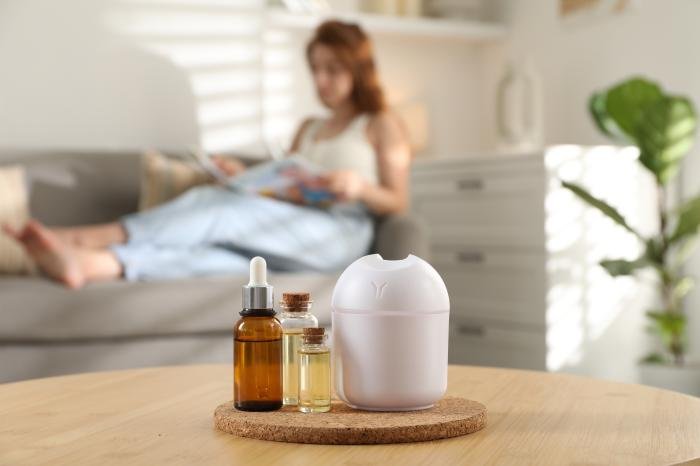
Понимание чувствительности к синтетическим ароматизаторам
Синтетические ароматические соединения могут вызывать побочные реакции у чувствительных людей. Эти реакции варьируются от легкой головной боли до тяжелых респираторных расстройств. Люди, страдающие аллергией или астмой, подвергаются большему риску при воздействии концентрированных ароматических масел путем диффузии.
Правильная вентиляция имеет решающее значение при использовании любых парфюмерных масел в помещении. Плохая циркуляция воздуха позволяет молекулам аромата накапливаться, повышая уровень воздействия выше безопасного порога. Открывание окон или использование вытяжных вентиляторов помогает поддерживать здоровое качество воздуха в помещении во время сеансов диффузии.
Особые соображения для уязвимых групп
Дети и домашние животные нуждаются в дополнительной защите при использовании парфюмерных масел. Благодаря меньшим размерам тела и развивающейся дыхательной системе они более восприимчивы к проблемам со здоровьем, связанным с ароматами. Безопасные для детей ароматы должны содержать меньше синтетических добавок и иметь более низкую концентрацию.
Безопасные для домашних животных диффузорные масла не содержат ингредиентов, токсичных для животных, особенно кошек и птиц. Такие эфирные масла, как чайное дерево, эвкалипт и цитрусовые, могут вызвать повреждение печени у домашних животных. Всегда изучайте безопасность масел, прежде чем использовать их для диффузии вблизи животных.
| Фактор риска | Дети | Домашние животные | Чувствительные взрослые |
|---|---|---|---|
| Раздражение дыхательных путей | Высокий | Очень высокий | Умеренный |
| Чувствительность кожи | Умеренный | Высокий | Переменная |
| Системная токсичность | Низкий | Высокий | Низкий |
| Рекомендуемое время выдержки | <30 минут | Полностью избегайте | Наблюдайте за симптомами |
Качественное смешивание масел и правильная упаковка помогают минимизировать риски для здоровья, обеспечивая постоянную концентрацию и предотвращая загрязнение. Правильно подобранные масла сохраняют свою силу диффузии, не требуя чрезмерных объемов, которые могут перегрузить помещение.
Какие смеси парфюмерных масел создают особый эффект настроения?
Не можете найти подходящий аромат, который действительно влияет на ваше настроение? Идеальные смеси для диффузоров кажутся неуловимыми, когда они нужны больше всего.
Лавандовое и эвкалиптовое масло создают успокаивающие ароматы, а комбинации цитрусовых и мяты - возбуждающие. Ароматы, способствующие улучшению сна, обычно сочетают ромашку с бергамотом для максимальной эффективности.
%[успокаивающие смеси масел лаванды эвкалипта для диффузоров эффект настроения](https://placehold.co/600×400 "Смеси эфирных масел, создающие специфические эффекты настроения в домашних диффузорах")
Научно обоснованные успокаивающие комбинации
Исследования показывают, что специальные смеси масел для диффузоров вызывают измеримые физиологические реакции. Лавандовое масло в сочетании с бергамотом снижает уровень кортизола на 23% в течение 15 минут после диффузии. Эвкалиптовое масло в сочетании с ромашкой повышает активность нейротрансмиттера ГАМК, способствуя расслаблению без седативного эффекта. Эти успокаивающие ароматические формулы работают лучше всего, когда они правильно сбалансированы - обычно это базовые ноты 60%, такие как сандаловое дерево, средние ноты 30%, такие как лаванда, и верхние ноты 10%, такие как бергамот.
Смеси, заряжающие энергией и способствующие сну
Вязкость и молекулярный вес различных масел определяют скорость их распространения и влияние на настроение. Энергичные ароматы, такие как мята и розмарин, имеют более легкую молекулярную структуру, которая стимулирует бодрость в течение 5-10 минут. Ароматы, способствующие сну, имеют более тяжелые молекулы, которые высвобождаются медленно, поддерживая терапевтический уровень в течение 6-8 часов.
| Эффект настроения | Основные масла | Коэффициент смешивания | Время диффузии |
|---|---|---|---|
| Успокаивающий | Лаванда, ромашка, бергамот | 3:2:1 | 4-6 часов |
| Энергичный | Мята, лимон, розмарин | 2:2:1 | 2-3 часа |
| Сон | Кедровое дерево, лаванда, апельсин | 3:2:1 | 6-8 часов |
Профессиональное смешивание партий обеспечивает постоянство потенции и предотвращает засорение ультразвуковых диффузоров. Качественная упаковка с точным измерением вязкости гарантирует оптимальное сохранение аромата и надежный эффект настроения каждый раз.
Заключение
Парфюмерные масла эффективно работают в диффузорах, если вы понимаете их совместимость, пропорции разбавления и соображения, касающиеся здоровья. Эфирные масла обладают терапевтическими свойствами, а парфюмерные масла - более стойкими синтетическими ароматами с разными требованиями к вязкости. Выбирайте ультразвуковые диффузоры для тонких масел, обеспечивайте правильную вентиляцию для безопасности и подбирайте смеси, улучшающие настроение, исходя из ваших конкретных потребностей. Начните экспериментировать с безопасными диффузорами уже сегодня, чтобы преобразить атмосферу вашего дома с помощью идеального ароматического решения.
ЧАСТО ЗАДАВАЕМЫЕ ВОПРОСЫ
Вопрос 1: Какие парфюмерные масла лучше всего подходят для диффузоров?
Лучшие парфюмерные масла для диффузоров - это высококачественные и долгоиграющие ароматы, такие как эвкалиптовое масло или успокаивающие смеси. Ищите масла, специально предназначенные для использования в диффузоре, чтобы убедиться в правильной вязкости и передаче аромата.
Вопрос 2: Как выбрать подходящую смесь масел для диффузора?
Выберите смесь масел в зависимости от желаемого эффекта - успокаивающие ароматы, например лаванды, для расслабления или бодрящие, например цитрусовые, для энергии. Убедитесь, что смесь совместима с вашим типом диффузора для оптимальной работы.
Q3: Можно ли смешивать различные парфюмерные масла в диффузоре?
Да, вы можете смешивать парфюмерные масла в своем диффузоре, чтобы создавать индивидуальные ароматы. Однако убедитесь, что масла совместимы, и соблюдайте рекомендуемые пропорции разбавления, чтобы не переборщить и не повредить диффузор.
Q4: Почему мой диффузор не дает сильного аромата?
Слабый аромат может быть следствием использования некачественных масел, неправильной вязкости масла или переполненного диффузора. Для достижения наилучших результатов используйте высококачественные парфюмерные масла, предназначенные для диффузоров, и следуйте рекомендациям производителя.
Q5: Безопасны ли парфюмерные масла для диффузоров для домашних животных?
Некоторые парфюмерные масла, особенно содержащие эвкалипт или другие эфирные масла, могут быть вредны для домашних животных. Всегда проверяйте состав ингредиентов и обращайтесь к ветеринару или производителю диффузора, чтобы выбрать безопасный для питомца вариант.

